
Kathryn Tickell, OBE, DL is an English musician, noted for playing the Northumbrian smallpipes and fiddle.

Battlefield Band is a Scottish traditional music group. Founded in Glasgow in 1969, they have released over 30 albums and undergone many changes of lineup. As of 2010, none of the original founders remain in the band.
Here Northumbria is defined as Northumberland, the northernmost county of England, and County Durham. According to 'World Music: The Rough Guide', "nowhere is the English living tradition more in evidence than the border lands of Northumbria, the one part of England to rival the counties of the west of Ireland for a rich unbroken tradition. The region is particularly noted for its tradition of border ballads, the Northumbrian smallpipes and also a strong fiddle tradition in the region that was already well established in the 1690s. Northumbrian music is characterised by considerable influence from other regions, particularly southern Scotland and other parts of the north of England, as well as Irish immigrants.
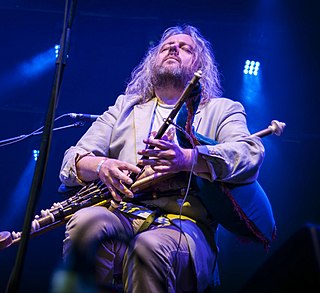
Troy Donockley is an English composer and multi-instrumentalist most known for his playing of Uilleann pipes. Having performed with many artists as a session player, he is most notable as a member of Finnish symphonic metal band Nightwish, which he has performed with since 2007 and joined as a full-time member in 2013.

The Tannahill Weavers are a band which performs traditional Scottish music. Releasing their first album in 1976, they became notable for being one of the first popular bands to incorporate the sound of the Great Highland Bagpipe in an ensemble setting, and in doing so helped to change the sound of Scottish traditional music. In 2011 the band were inducted into the Scottish Traditional Music Hall of Fame.
Jack the Lad were a British folk rock group from North East England formed in 1973 by three former members of the most successful band of the period from the region, Lindisfarne. They moved from the progressive folk rock of Lindisfarne into much more traditional territory and were in the mid-1970s something of a northern counterpart to bands like Fairport Convention. They have also been seen as part of an important roots movement, rediscovering traditional Northumbrian music.

Kevin Burke is an Irish master fiddler considered one of the finest living Irish fiddlers. For nearly five decades he has been at the forefront of Irish traditional music and Celtic music, performing and recording with the groups The Bothy Band, Patrick Street, and the Celtic Fiddle Festival. He is a 2002 recipient of a National Heritage Fellowship from the National Endowment for the Arts.
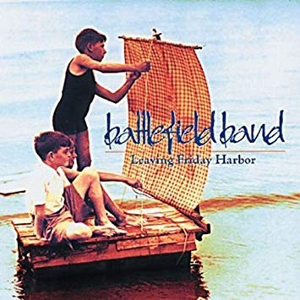
Leaving Friday Harbor, an album by The Battlefield Band, was released in 1999 on the Temple Records label.
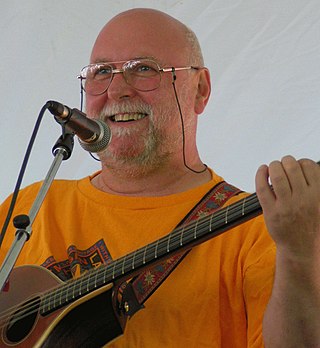
Brian McNeill is a Scottish folk multi-instrumentalist, songwriter, record producer and musical director. He was a founding member of Battlefield Band which combined traditional Celtic melodies and new material.

Happy Daze, an album by the Battlefield Band, was released in 2001 on the Temple Records label.

Live Celtic Folk Music is a live album by Battlefield Band, released in 1998 on the Munich Records label. It was recorded in 1980 at the Winterfolkfestival, held in Dordrecht, The Netherlands.
The House Band was a musical group formed in Edinburgh in 1984 by musicians Ged Foley, Jimmy Young, Iain Macleod and Chris Parkinson. They played original compositions and traditional music in a Celtic/British folk style, with influences from reggae, country, pop, jazz and world music. Successive regroupings of the band released nine albums over seventeen years, touring in United Kingdom, Europe, Africa, Australia, New Zealand and the United States, before finally disbanding in 2001.

Wae's me for Prince Charlie is Battlefield Band's second (studio) album on the Escalibur label. It was first released on LP in 1978 as Volume II - Wae's me for Prince Charlie.
Alan Reid is a Scottish folk multi-instrumentalist and songwriter. He was a founding member of Battlefield Band, which combined traditional Celtic melodies and new material.
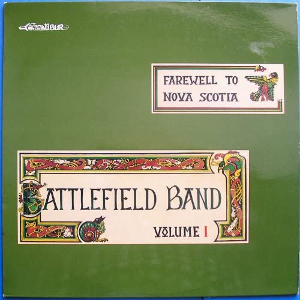
Farewell to Nova Scotia is Battlefield Band's debut (studio) album. It was first released on LP in 1976 on the Breton label Arfolk as Scottish Folk and on the Escalibur label as Volume I - Farewell to Nova Scotia. The album is named after the title song "Farewell to Nova Scotia".
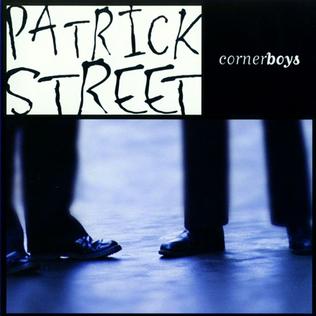
Cornerboys is the fifth studio album by the Irish folk band Patrick Street, released in 1996 on Green Linnet Records.
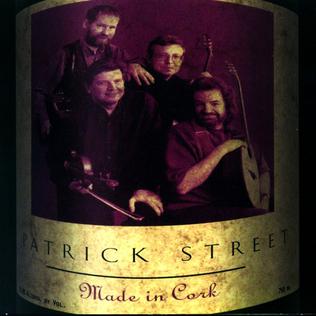
Made in Cork is the sixth studio album by the Irish folk band Patrick Street, released in 1997 on Green Linnet Records.

Street Life is the eighth album by the Irish folk band Patrick Street, released in 2002 on Green Linnet.

Beg & Borrow is the thirty-second album by Battlefield Band and their twenty-fourth studio album, released on the Temple Records label as a digital download on 21 August 2015 and on CD in the UK on 18 September 2015 and in the United States on 16 October 2015.
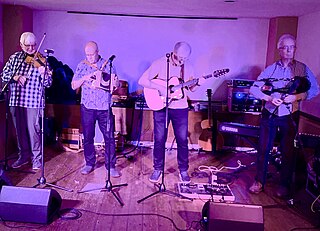
Camus are a traditional folk band from Cambridge, England, named after a village in Co. Galway, Ireland. They perform as a fourpiece: Greg Smith on fiddle, Andrew Burn on melodeon, vocals and Northumbrian smallpipes, David Somerville on keyboards and Northumbrian smallpipes, and Brian Cleary on vocals, guitar and bouzouki. Their repertoire fuses influences from Northumbrian, Shetland and Irish music, as well as their own song and tune compositions drawing on Cleary and Burn’s backgrounds in Ireland and North East England respectively.
















